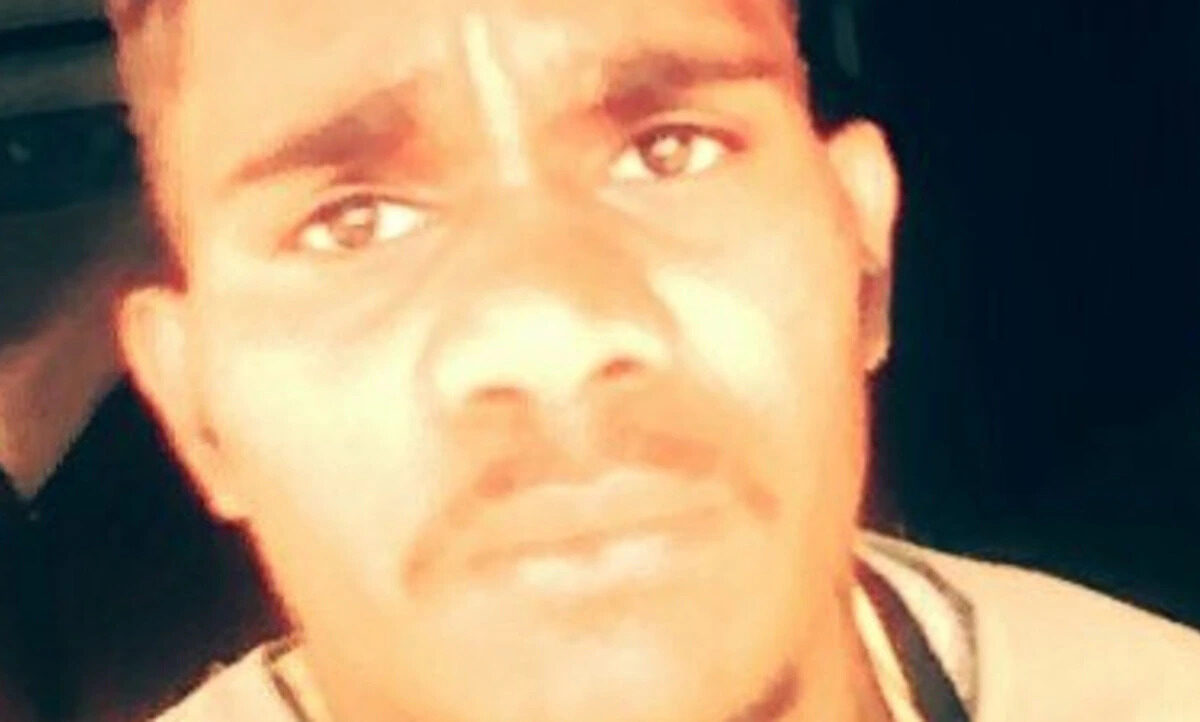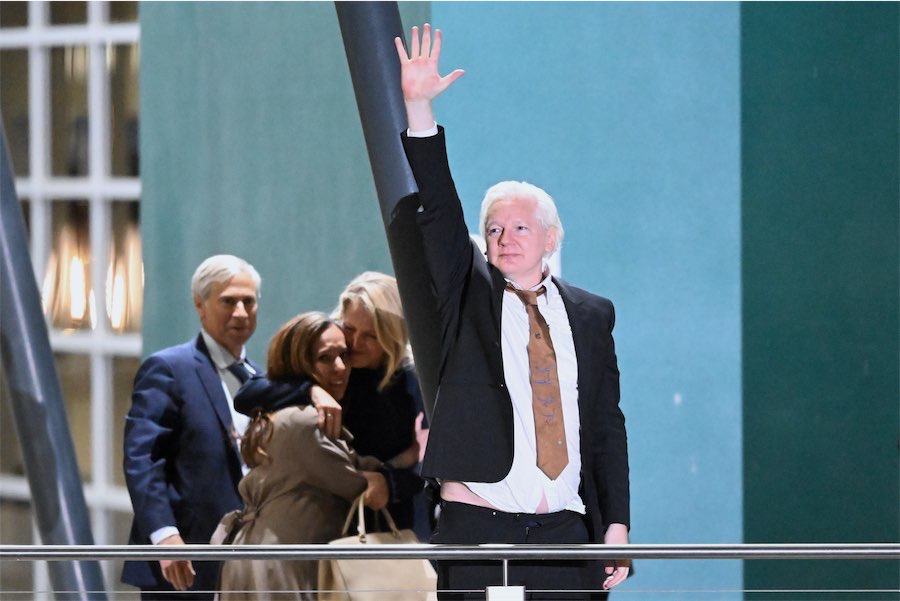
By Karen Sweeney in Melbourne
IN an isolated ultra-Orthodox community, Malka Leifer was revered in a way three Melbourne sisters had never witnessed in a woman.
For Nicole Meyer, Dassi Erlich and Elly Sapper, having the attention of this celebrated woman was something they welcomed and even sought.
They had no understanding of the sexual abuse she perpetrated when they were students and student teachers between 2003 and 2008.
Leifer has been found guilty of 18 charges including rape and indecent assault against Ms Erlich and Ms Sapper.
She was acquitted of five charges involving Ms Meyer.
The Adass Israel community is small and confined to a few suburbs in Melbourne’s south-east. They have their own schools, synagogue and shops.
Contact with the outside world is limited.
The sisters had no television, no internet or newspapers. Jewish magazines were an occasional find.
News came from their peers. Ms Meyer learned of the September 11 terrorist attack from a classmate with American relatives. She didn’t know what the Twin Towers were.
Men and women were separated from kindergarten.
Ms Erlich’s first real conversation with a non-related boy was with her now ex-husband.
She was engaged the first time she saw mainstream media – scenes of Mary-Kate and Ashley Olsen in Full House.
She wrote their names in her diary with nine ticks. “It was very exciting to me,” she said.
They were raised to believe a girl’s job was to be covered and modest.
“I was taught that my job as a woman was not to distract the men, to let them learn the Torah and for women, for me, to grow up and give birth to the next generation of Torah children,” Ms Erlich said.
Their bodies were taboo and shrouded in secrecy – girls’ bodies in books would have modest clothing drawn on.
There was no sex education. Girls received kallah lessons on family purity and being a good Jewish wife and mother before their weddings.
Ms Erlich was taught sex was a holy act to produce children. Women must have the right intentions and pray in the right way.
It’s against that backdrop that Malka Leifer arrived in their lives, moving to Melbourne from Israel in 2001. She was appointed menaheles, or principal, of the girls’ school a year later.
She was warm, charismatic and friendly, and her big personality felt like a burst of energy.
“She came to the community and became this person that was revered as much as a rabbi, and I had never seen a woman that people looked up to like this,” Ms Erlich said.
Leifer was friendlier than the previous principal and would touch girls on the arms or back, something that was “drastically different” for the sisters.
Leifer’s barrister, Ian Hill KC, suggested something must have gone very wrong with the girls if they thought that was inappropriate.
Ms Meyer didn’t think it was inappropriate, just odd.
Physical affection wasn’t something they saw much in their community or at home.
Childhood was not kind to the sisters. Leifer made them feel cared for and loved.
“It felt unconditional,” Ms Meyer said.
Ms Erlich felt special that Leifer had noticed her and offered to give her private lessons.
“I had this person that everybody looked up to paying attention to me, and I was desperate for that support,” she said.
“She was telling me that she loves me, which were words that I was absolutely desperate to hear at the time.”
During those lessons Leifer would rub her thighs, moving her hands higher each time.
Initially it felt loving and affectionate, but Ms Erlich was too embarrassed to ask if Leifer knew how high her hand was going.
Also she trusted Leifer, who told her she was like a mother.
“I thought maybe this is what loving mothers do. I had never experienced a mother that was loving.”
The lessons were also a big privilege. The connection to Leifer would make Ms Erlich look better when it came to marriage.
“But it was also like she was closer to God than I was, and by having those lessons it was like she was increasing my spirituality and my religion, which was something that was of the utmost importance to me,” she said.
When Ms Sapper experienced confusion about her religion, she felt safe talking to Leifer, who had chosen her as a favourite to run errands for her and help with her children.
“She made me feel loved when I spent time with her… I was hoping that she would love me like a mother. I wanted to feel loved,” she said.
On school camps, in private lessons, in her home and in her office, Leifer abused the sisters.
She traded love and affection for their trust and exploited it.
Ms Meyer told jurors she remembered Leifer molesting her with one hand while giving her baby a bottle with the other, and that Leifer allegedly told her “I’ll leave that to your husband” and “this will help prepare you for your wedding night”.
Leifer was found not guilty of all charges involving Ms Meyer.
Ms Sapper told the jury she had walked into a room at the Adass Israel School where Leifer had been abusing Ms Erlich. They didn’t speak of it at the time.
“Mrs Leifer was one of the most respected persons in the community. If Mrs Leifer was doing something then it must be OK,” Ms Sapper said.
She didn’t know she should ask about it and she didn’t have the language to ask anyway.
At one point in the trial Mr Hill quizzed Ms Erlich on a suggestion that, at age 17, she didn’t know the word breast.
“I don’t have a recollection of what I called my breasts at that age, but it wasn’t a term that anybody had used with me,” she said.
The abuse, which began when they were students, continued when they returned after graduation as student teachers.
Ms Meyer said she lived a split life – one where she was allegedly abused by Leifer and another where she disassociated to appear normal in interactions with her principal, turned boss.
Ms Erlich tried to get close with another teacher to talk about what Leifer was doing to her, but said Leifer intervened.
“She told me that it wasn’t healthy for me to have a connection with another teacher, to have more than one mentor,” she said.
Leifer also implied she would tell others about Ms Erlich’s home life – a source of deep shame for her at the time.
Ms Erlich feared she would be seen as “damaged goods” when it came time to marry. When she did, she didn’t tell her then-husband. They didn’t have that sort of relationship.
Ms Sapper had been conditioned to respect authority and never question it.
“When Mrs Leifer abused me… even if there were times that it didn’t feel right or comfortable there was no ability to question or to ask or to understand, because you cannot question authority,” she said.
Ms Erlich was the first to disclose the abuse, telling social worker Chana Rabinowitz in early 2008. Ms Rabinowitz phoned Ms Meyer, who confirmed she had been abused, too.
The school was notified and Leifer was stood down. Teary, she claimed what was happening was unfair. Days later she fled to Israel.
She was arrested in Israel in 2014 and spent six years fighting extradition to Australia on grounds she was mentally unfit. Israeli Police accused her of feigning mental illness.
Leifer was extradited, arriving in Melbourne in early 2020 just hours before airports closed because of COVID-19.
After a two-month trial in the Victorian County Court, jurors took 32 hours of deliberations over nine days to return 18 guilty verdicts against her. She was acquitted of nine charges.
Who can be trusted?
In a world of spin and confusion, there’s never been a more important time to support independent journalism in Canberra.
If you trust our work online and want to enforce the power of independent voices, I invite you to make a small contribution.
Every dollar of support is invested back into our journalism to help keep citynews.com.au strong and free.
Thank you,
Ian Meikle, editor





Leave a Reply